Project Wingspan: Expansion and Connectivity
Project Wingspan: Expansion and Connectivity (PWEC) set out to increase the quality, quantity, and connectivity of monarch, rusty patched bumble bee, and other imperiled pollinator habitat throughout five states within the Midwest and Great Lakes region through a highly collaborative, innovative model that approached the deficit of this crucial habitat on the landscape by addressing two of the major roadblocks many projects face: the shortage of commercially available regionally appropriate plant materials and the knowledge of programs, practices, and support that can help land stewards on their habitat journey. Through this initiative, Pollinator Partnership (P2), in collaboration with our diverse project partners, successfully facilitated the continued growth of a regional seed collecting program (PWEC) through the use of our online training module, the hosting of several live virtual seed collection training watch parties, and the creation of PWEC’s virtual habitat technical training workshop series. This resulted in 1,616 trained conservation professionals and land stewards as well as 277 trained and certified seed collection volunteers who completed over 700 seed collections of native milkweed and other target pollinator supporting (host, nectar, and pollen forage) plants across our target region, producing 193.7 lbs. of cleaned seed of which a portion enabled the successful grow out of 6,030 plugs. With the use of our novel online habitat survey, P2 was able to identify hundreds of landowners and managers interested in pollinator conservation across AR, IL, MI, MN, and WI. This survey allowed us to locate habitat projects to award seed and plugs generated from collection efforts, contributing to the restoration of 1,028 acres as well as the enhancement and/or improved management of 8,204 acres of land as pollinator habitat.
Project Wingspan Pollinator Habitat Technical Training Workshop Series
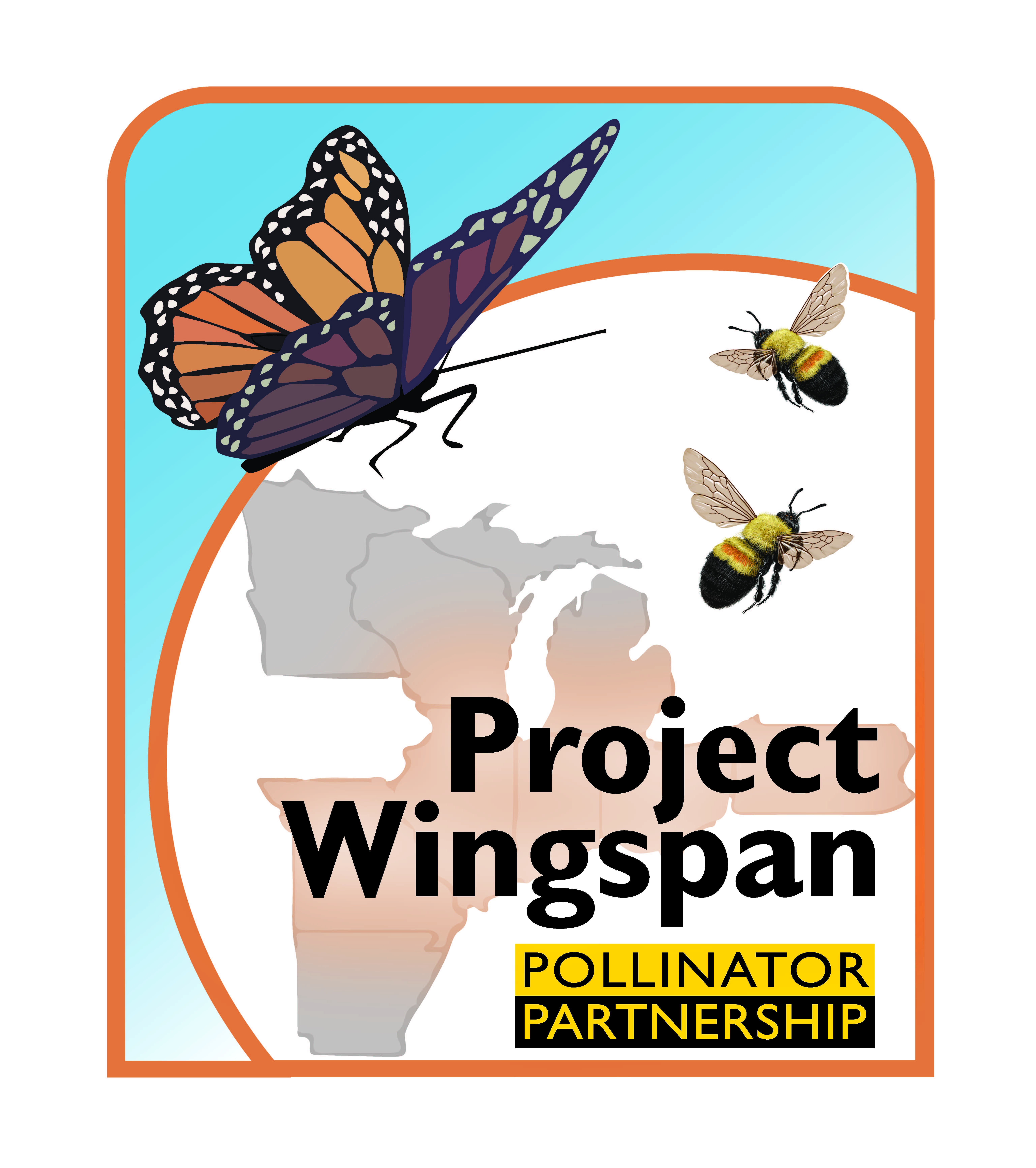
The Project Wingspan team is thrilled to offer this workshop series. The overarching goal of this workshop series is to increase the success of native habitat restoration and management efforts by offering land managers and stewards advanced educational support, recent findings from scientific field research, guidance on current best management practices, and practical solutions to ‘real-world’ habitat management obstacles. In collaboration with professional land managers and conservation scientists from throughout the Midwest and Great Lakes region, Project Wingspan invites your participation in this 5-part workshop series.
*For the purpose of these workshops, the term “restoration” is defined as management actions that intend to enhance and/or support native plant, pollinator, and other wildlife species biodiversity, ecosystem function and service provision, and long-term native landscape sustainability.
Workshop 1: Native Pollinator Ecology and Biology and other Grassland Species of Concern
Monarch Butterfly by Amber Barnes; Rusty-Patched Bumble Bee by Rachel Samerdyke, USFWS
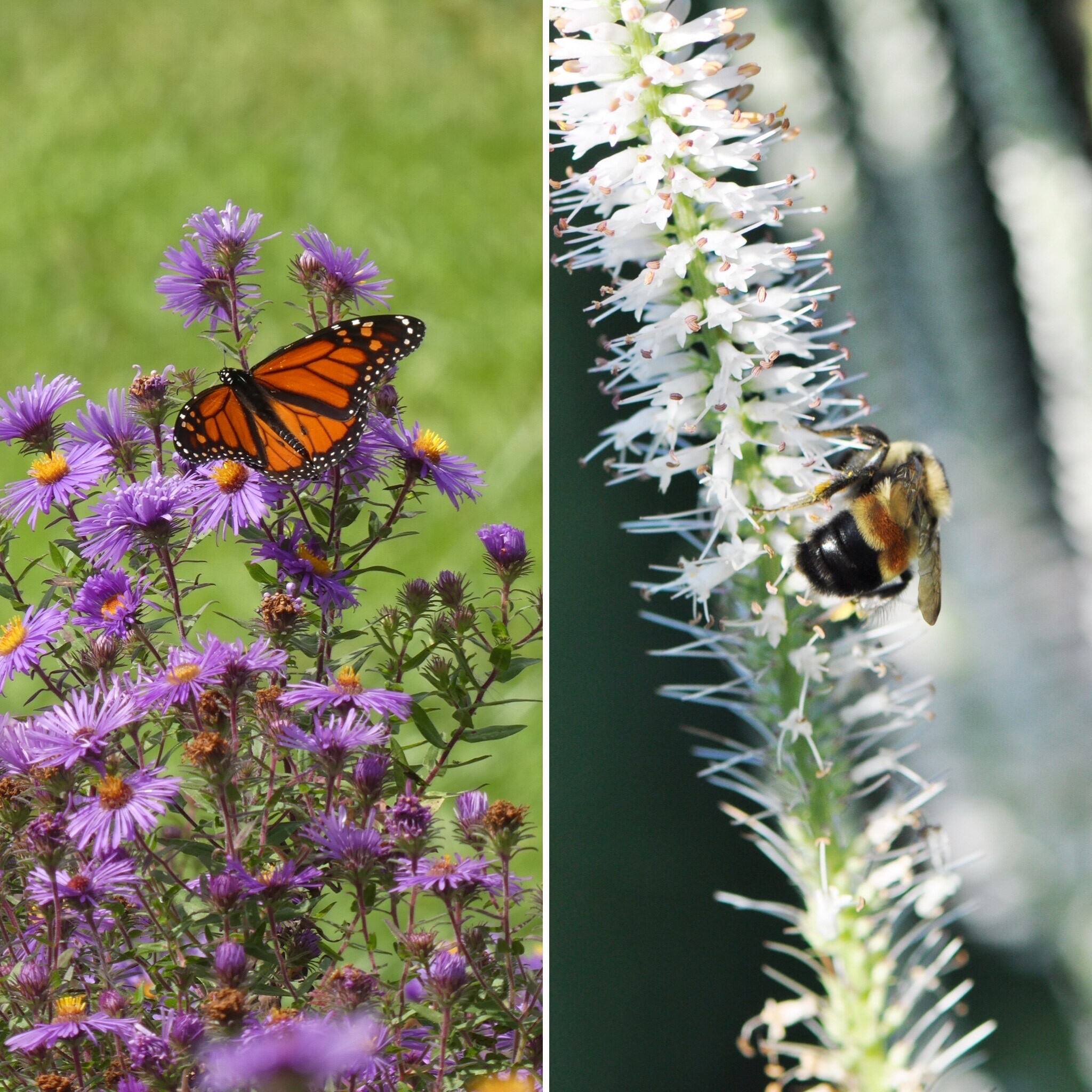
This workshop includes an overview of native resident and migrating pollinators of the midwest and their habitat needs, highlighting the biology and ecological relationships of the rusty patched bumblebee, monarch, Karner blue, and other Midwestern/Great Lakes region species of concern including grassland birds.
TOPIC 1: Native bees – Including the importance and diversity of species, habitat needs, life history overview and status of species of concern highlighting RPBB.
Ed Spevak, Ph.D., Curator of Invertebrates, St. Louis Zoo and Director, Center for Native Pollinator Conservation
TOPIC 2: Native Lepidoptera - Including the importance and diversity of species, habitat needs, life history overview, and status of species of concern.
Anna Hess, Ph.D., Deputy Director, USGS, Upper Midwest Environmental Sciences Center
TOPIC 3: Maximizing Benefits for Grassland Wildlife on USFWS Lands.
Kelly VanBeek, Wildlife Biologist-Migratory Bird Program, USFWS
Ben Walker, Wildlife Biologist, USFWS, Glacial Ridge & Rydell National Wildlife Refuges, MN
Recorded on Wednesday, November 3rd , 2021
Register for free on demand viewing of Workshop 1Workshop 2: Building Scientific Understanding to Guide Native Pollinator Habitat Restoration Practices
Native Pollinator Habitat by Elizzabeth Kaufman
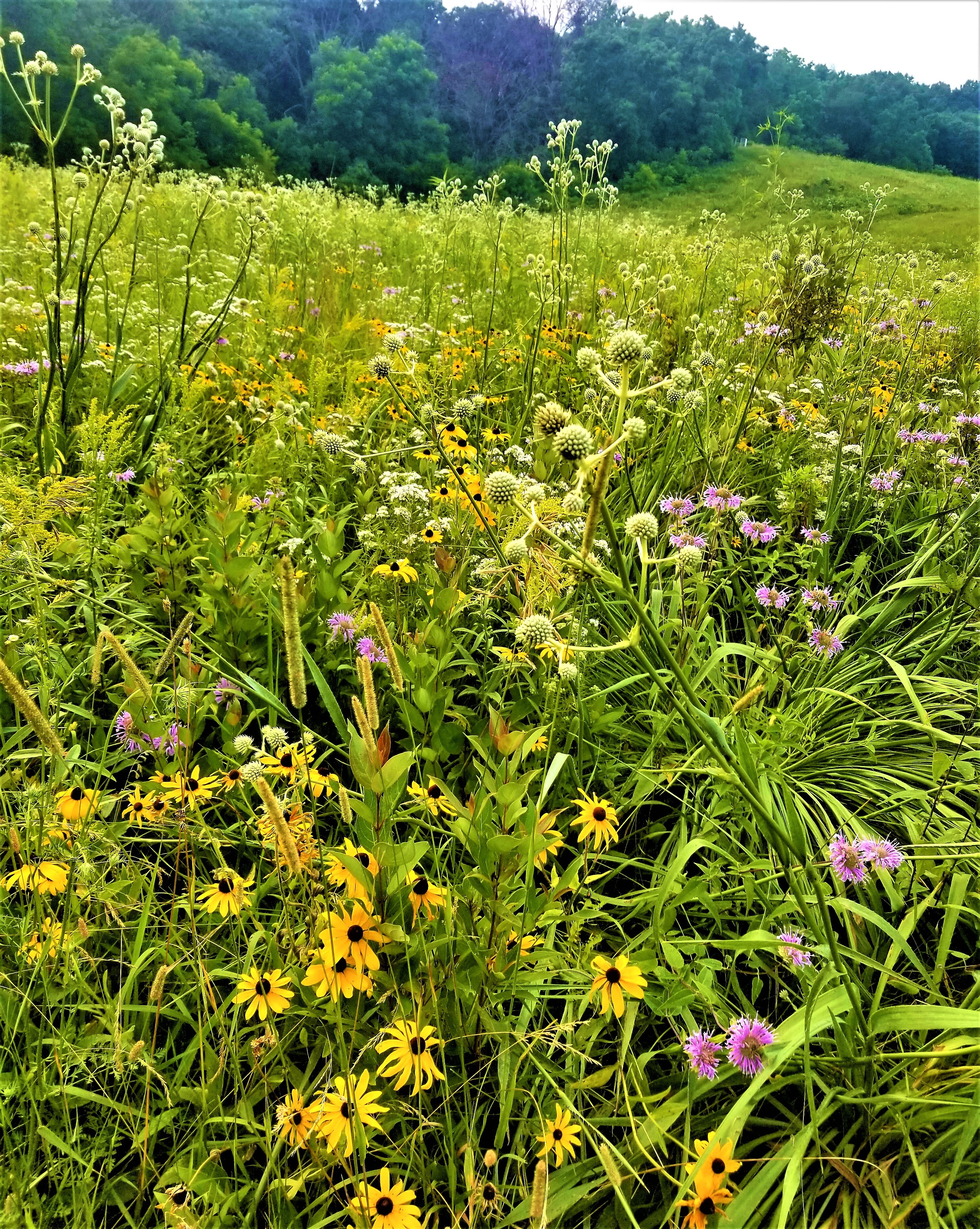
This workshop aims to increase restoration practitioners’ understanding of the scientific foundations that guide native habitat restoration and management. This includes plant-pollinator interdependency and long-term ecosystem sustainability; why holistic approaches to habitat management are important to biodiversity; the significance of native and invasive plant species for pollinators/wildlife and to restoration outcomes; and how to translate knowledge gained from research into practical management actions.
TOPIC 1: Understanding the cascading impacts of invasive plants and why natives are part of the solution.
Dawn Slack, Director of Stewardship, The Nature Conservancy and Chair for the Invasive Plant Advisory Committee to the Invasive Species Council
TOPIC 2: The implications from current research on managing monarch and other native pollinator habitat.
Nathan Haan, Ph.D., Post-Doctoral Research Associate, Landis Lab, Michigan State University
TOPIC 3: Establishing diverse prairie restorations.
Becky Barak, Ph.D., Conservation Scientist, Chicago Botanic Garden and Northwestern University
Recorded on Wednesday, November 10th, 2021
Workshop 3: Restoration Project Planning, Native Plant Materials, and Site Preparation
Pollinator Habitat Restoration by Elizzabeth Kaufman
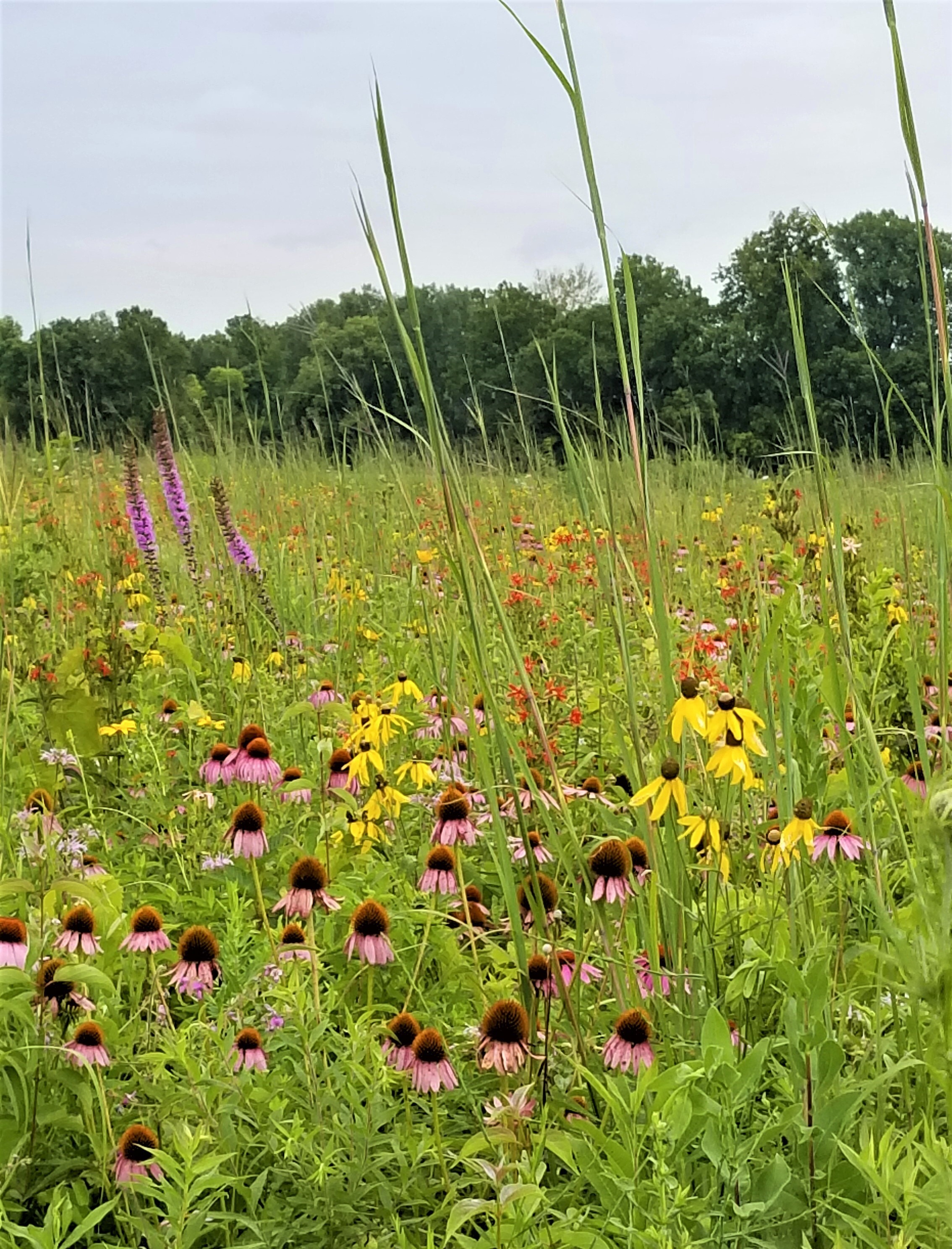
This workshop aims to provide practitioners with guidelines for developing achievable restoration plans as well as to provide practical information to help them determine the best approach to preliminary phases of restoration. The module will also provide technical guidance on site preparation and creating appropriate seed mixes.
TOPIC 1: Project planning: How to develop a habitat restoration/enhancement plan (including necessary elements to be considered and integrated).
Meri Holm, Wildlife Biologist & Great Lakes Restoration Initiative Pollinator Coordinator, USFWS
TOPIC 2: Native plant materials: Considerations for designing seed mixes and selecting plant materials for habitat enhancement and restoration.
Elizzabeth Kaufman, Senior Plant Ecologist, Pollinator Partnership
TOPIC 3: Site selection through site preparation methods for large-scale habitat creation and enhancement projects (including how to determine which methods(s) are most appropriate for your project site).
Julia Kemnitz, Private Lands Biologist, USFWS
Recorded on Wednesday, November 17, 2021
Register for free on demand viewing of Workshop 3Workshop 4: Project Implementation
Habitat Implementation by Niches Landtrust
This workshop will provide practical information, guidelines, and techniques on implementation and management actions for planting and the first two years of management.
TOPIC 1: Implementation strategies for large-scale projects and how to determine which method(s) are most appropriate, (including specifics on planting methodologies).
Josh Sage, Director of Natural Resources, Boone County Conservation District, IL
TOPIC 2: Establishment and early-stage habitat management: What to expect, how to read environmental responses, and adaptive management strategies.
Shane Otto, Land Restoration Specialist, Dane County Parks, WI
Lars Higdon, Naturalist/ Botanist, Dane County Parks, WI
Recorded on Wednesday, December 1st, 2021
Register for free on demand viewing of Workshop 4Workshop 5: Habitat Management and Monitoring
Prescribed Fire by Joe Robb, USFWS
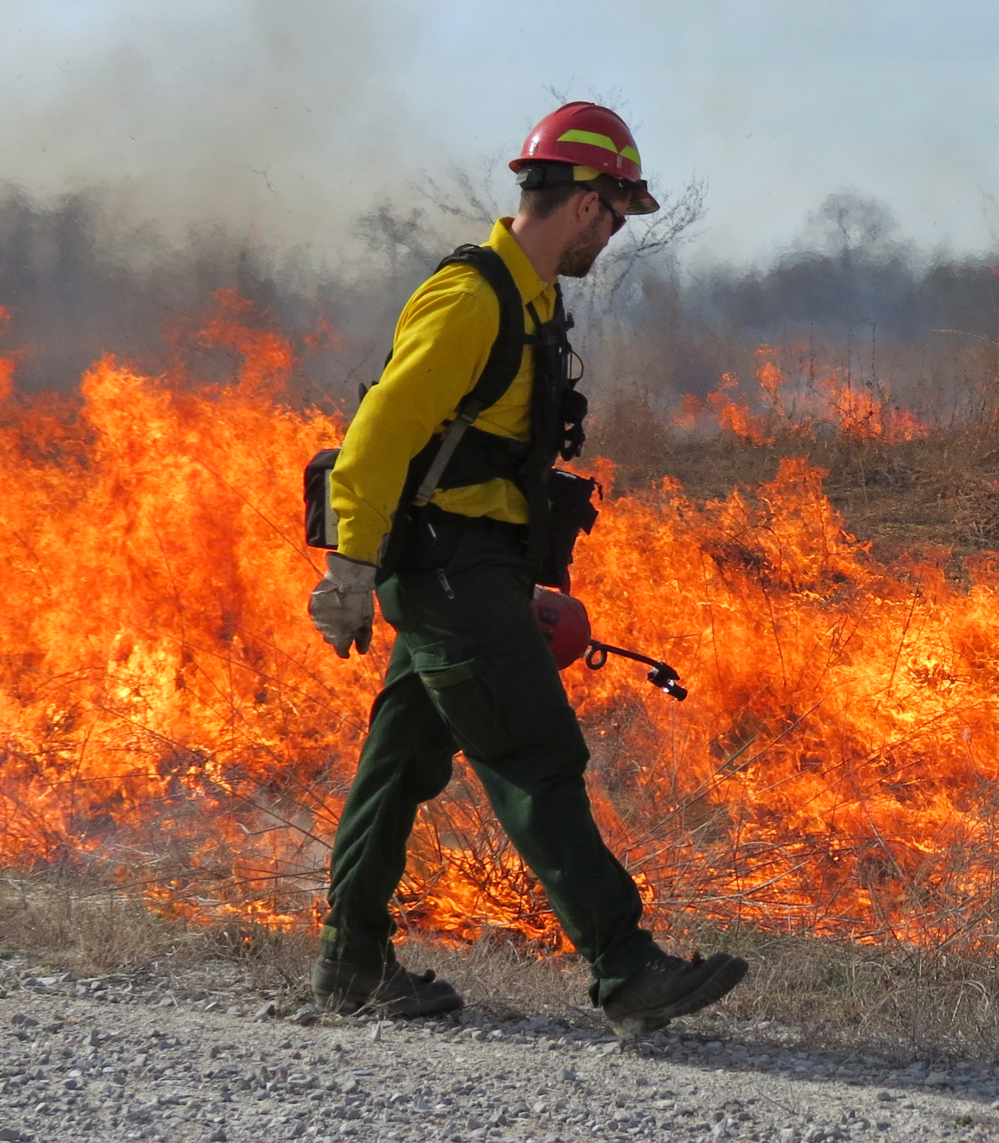
This workshop will provide practitioners with technical guidance for the successful stewardship of habitat including what to expect and recommended management actions over time. This module will also provide a better understanding of the importance of monitoring to evaluate the success or need to adapt management plans, as well as include specific monitoring methodologies.
TOPIC 1: Long-term management considerations and strategies.
Dan Zay, State Resource Conservationist, USDA/NRCS
TOPIC 2: Disturbance, prescribed fire, and the importance of managing succession.
Joe Robb, Ph.D., Project Lead, USFWS, Big Oaks and Muscatatuck Nation Wildlife Refuge Complex
Quanit Ali, Wildlife Biologist, USFWS, Necedah National Wildlife Refuge
Angela VanWinden, Wildlife Refuge Specialist, USFWS, Muscatatuck National Wildlife Refuge
TOPIC 3: The importance of monitoring: Incorporating the Integrated Monarch Monitoring Program (IMMP) into Your Project.
Jennifer Thieme, Science Coordinator, Monarch Joint Venture
Recorded on Wednesday , December 8th, 2021
Register for free on demand viewing of Workshop 5